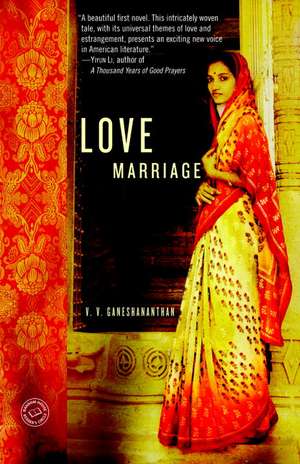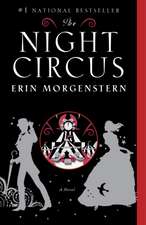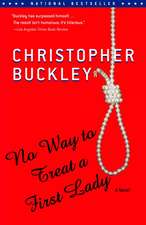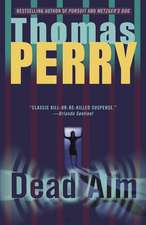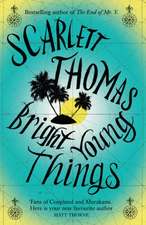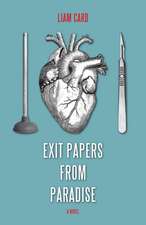Love Marriage
Autor V. V. Ganeshananthanen Limba Engleză Paperback – 31 mar 2008
The daughter of Sri Lankan immigrants who left their collapsing country and married in America, Yalini finds herself caught between the traditions of her ancestors and the lure of her own modern world. But when she is summoned to Toronto to help care for her dying uncle, Kumaran, a former member of the militant Tamil Tigers, Yalini is forced to see that violence is not a relic of the Sri Lankan past, but very much a part of her Western present.
While Kumaran’s loved ones gather around him to say goodbye, Yalini traces her family’s roots–and the conflicts facing them as ethnic Tamils–through a series of marriages. Now, as Kumaran’s death and his daughter’s politically motivated nuptials edge closer, Yalini must decide where she stands.
Lyrical and innovative, V. V. Ganeshananthan’s novel brilliantly unfolds how generations of struggle both form and fractures families.
Praise for Love Marriage
“A beautiful first novel. This intricately woven tale, with its universal themes of love and estrangement, presents an exciting new voice in American literature.”
–Yiyun Li, author of A Thousand Years of Good Prayers
“Complex and moving . . . an impressive debut.”
–Daniel Alarcón, author of Lost City Radio
“V. V. Ganeshananthan has given us a riveting picture of the intersections of love and war that shape us all. A debut of incredible passion and wisdom.”
–Rebecca Johns, author of Icebergs
“At its best and simplest, Ganeshananthan can be profoundly moving. She captures the pain of exile poignantly.” --The San Francisco Chronicle
“Ganeshananthan has created a slow-burning and beautifully written debut in Love Marriage. It is an evocative examination of Sri Lankan cultural mores, and the way one family is affected by love and war” — The Financial Times
“Poignant and authentic…. Insight gained into Toronto's Tamil community is a welcome bonus in this gem of a book by a young writer who is sure to present more thought-provoking, entertaining prose in the future.” --The Toronto Star
“The book is at times witty and always beautifully written” — The Irish Times
"Innovative….this is an ambitious family drama about an underreported part of the world, filled with well-shaded characters [and] gorgeous flourish…Buy it." -- New York Magazine
"As if she were stringing a necklace of bright beads, the author relates the stories of Yalini's Sri Lankan forebears in lapidary folkloric narratives…What she does here, she does quite affectingly." -- The Boston Globe
"In spare, lyrical prose, V.V. Ganeshananthan's debut novel tells the story of two Sri Lankan Tamil families over four generations who, despite civil war and displacement, are irrevocably joined by marriage and tradition….Powerful." -- Ms. Magazine
| Toate formatele și edițiile | Preț | Express |
|---|---|---|
| Paperback (2) | 52.95 lei 3-5 săpt. | +26.14 lei 4-10 zile |
| Orion Publishing Group – 5 sep 2024 | 52.95 lei 3-5 săpt. | +26.14 lei 4-10 zile |
| Random House Trade – 31 mar 2008 | 122.57 lei 6-8 săpt. | +59.77 lei 4-10 zile |
Preț: 122.57 lei
Nou
Puncte Express: 184
Preț estimativ în valută:
23.46€ • 25.47$ • 19.70£
23.46€ • 25.47$ • 19.70£
Carte tipărită la comandă
Livrare economică 22 aprilie-06 mai
Livrare express 15-21 martie pentru 69.76 lei
Preluare comenzi: 021 569.72.76
Specificații
ISBN-13: 9781400066698
ISBN-10: 1400066697
Pagini: 302
Ilustrații: FAMILY TREE
Dimensiuni: 131 x 204 x 18 mm
Greutate: 0.36 kg
Editura: Random House Trade
ISBN-10: 1400066697
Pagini: 302
Ilustrații: FAMILY TREE
Dimensiuni: 131 x 204 x 18 mm
Greutate: 0.36 kg
Editura: Random House Trade
Extras
Chapter 1
In this globe-scattered Sri Lankan family, we speak only of two kinds of marriage. The first is the Arranged Marriage. The second is the Love Marriage. In reality, there is a whole spectrum in between, but most of us spend years running away from the first toward the second.
Among the categories that bleed outside these two carefully delineated boundaries: the Self-Arranged Marriage, the Outside Marriage, the Cousin Marriage, the Village Marriage, the Marriage Abroad. There is the Marriage Without Consent. There is the Marriage Under Pressure. There is even Marrying the Enemy, who, it turns out, is not an Enemy at all.
You cannot go unfettered into a family’s history if you are one of them. The nature of certain unions will be hidden from you, rephrased to you, the subject dropped, the music changed. There is Proper Marriage; there is Improper Marriage. This Tamil family speaks of the latter in whispers.
The rule is that all families begin with a marriage. And the other way around.
You don’t marry a person, my father says to no one in particular. You marry a family.
The Self-Arranged Marriage: my father has married my mother’s family so successfully that he now fits into it as well as—if not better than—he fits into his own. My mother is an Aravindran and, further back than that, a Vairavan, which means that the members of her family—especially her siblings—are nosy, noisy, close, and concerned with domestic comforts. Years after they stopped living where they had always lived, in a small house in the village of Urelu, in the town of Jaffna, they remain connected by telephone lines and carefully written aerograms. They never forget birthdays, favorite curries, or unkindnesses. They were once three but are now two. My father loves my mother’s family, and in return for that they draw him in. They have forgotten that when he wanted to marry my mother they circled around her protectively from the far corners of the globe, opposed to her marrying a man they had never even met. They only remember that she has a happy life in a country far safer than the one in which she was born.
And twenty-five years after their wedding, my parents like to give the impression that their marriage was Arranged, because they are both very Proper. But their secret is out: they fell in love. Those who are watching can see how in certain moments they become each other. This has been their way of falling in love: the acquisition of each other’s habits, mannerisms, preferences, and witticisms. They have built a wall around their two-ness, and each brick laid in place is a secret that only they share, or perhaps an exception one has made for the other. They have become an example of how you can Have Your Love and Eat It Too. They let everyone think that they took no responsibility for the way they came together. They engaged in all the dances of manners and the ceremonies involved in a Traditional Marriage, which is to say, an Arranged Marriage. This, they say, is not a romance. It begins with an introduction, a handshake, which is not the custom of the East but has become the greeting of the West. The touching of fingers is a strange, luscious intimacy, a preface to the story.
These two, my parents, have not acknowledged their secret—perhaps not even to each other. And they have exchanged rings and vows and hearts without eliciting the frowns that Improper Marriages frequently do.
In this globe-scattered Sri Lankan family, we speak only of two kinds of marriage. The first is the Arranged Marriage. The second is the Love Marriage. In reality, there is a whole spectrum in between, but most of us spend years running away from the first toward the second.
Among the categories that bleed outside these two carefully delineated boundaries: the Self-Arranged Marriage, the Outside Marriage, the Cousin Marriage, the Village Marriage, the Marriage Abroad. There is the Marriage Without Consent. There is the Marriage Under Pressure. There is even Marrying the Enemy, who, it turns out, is not an Enemy at all.
You cannot go unfettered into a family’s history if you are one of them. The nature of certain unions will be hidden from you, rephrased to you, the subject dropped, the music changed. There is Proper Marriage; there is Improper Marriage. This Tamil family speaks of the latter in whispers.
The rule is that all families begin with a marriage. And the other way around.
You don’t marry a person, my father says to no one in particular. You marry a family.
The Self-Arranged Marriage: my father has married my mother’s family so successfully that he now fits into it as well as—if not better than—he fits into his own. My mother is an Aravindran and, further back than that, a Vairavan, which means that the members of her family—especially her siblings—are nosy, noisy, close, and concerned with domestic comforts. Years after they stopped living where they had always lived, in a small house in the village of Urelu, in the town of Jaffna, they remain connected by telephone lines and carefully written aerograms. They never forget birthdays, favorite curries, or unkindnesses. They were once three but are now two. My father loves my mother’s family, and in return for that they draw him in. They have forgotten that when he wanted to marry my mother they circled around her protectively from the far corners of the globe, opposed to her marrying a man they had never even met. They only remember that she has a happy life in a country far safer than the one in which she was born.
And twenty-five years after their wedding, my parents like to give the impression that their marriage was Arranged, because they are both very Proper. But their secret is out: they fell in love. Those who are watching can see how in certain moments they become each other. This has been their way of falling in love: the acquisition of each other’s habits, mannerisms, preferences, and witticisms. They have built a wall around their two-ness, and each brick laid in place is a secret that only they share, or perhaps an exception one has made for the other. They have become an example of how you can Have Your Love and Eat It Too. They let everyone think that they took no responsibility for the way they came together. They engaged in all the dances of manners and the ceremonies involved in a Traditional Marriage, which is to say, an Arranged Marriage. This, they say, is not a romance. It begins with an introduction, a handshake, which is not the custom of the East but has become the greeting of the West. The touching of fingers is a strange, luscious intimacy, a preface to the story.
These two, my parents, have not acknowledged their secret—perhaps not even to each other. And they have exchanged rings and vows and hearts without eliciting the frowns that Improper Marriages frequently do.
Descriere
In war-torn Sri Lanka, there are two kinds of marriage: the Arranged Marriage and the Love Marriage. An American-born daughter of Sri Lankan immigrants is caught between the tradition of her ancestors and the modern world in which she lives, in this stunning first novel by an accomplished young writer.
